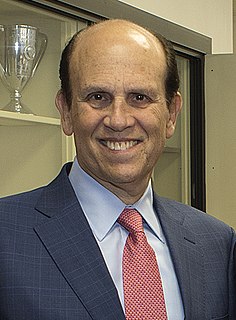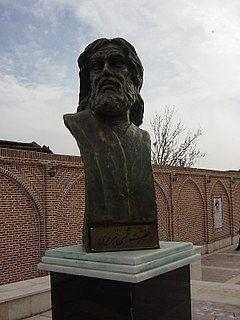A Quote by Peter Cundill
I try to keep in mind Oscar Wilde's comment that "saints always have a past and sinners always have a future," so no investment should be ruled out simply on the basis of past history. We focus on liquidation analysis and liquidation analysis alone.
Related Quotes
As far as me, I'm just looking forward to the future. There's a lot of people that look to the past. I've learned from the past, absolutely. I know my past absolutely. I'm not discrediting or... ignoring my past in any way, but my focus has always been moving forward, moving forward into the future.
The big picture is: the main thing you should be concerned about in the future are incremental returns on capital going forward. As it turns out, past history of a good return on capital is a good proxy for this but obviously not foolproof. I think this is an area where thoughtful analysis can add value to any simple ranking/screening strategy such as the magic formula. When doing in depth analysis of companies, I care very much about long term earnings power, not necessarily so much about the volatility of that earnings power but about my certainty of "normal" earnings power over time.
The biggest mistake investors make is to believe that what happened in the recent past is likely to persist. They assume that something that was a good investment in the recent past is still a good investment. Typically, high past returns simply imply that an asset has become more expensive and is a poorer, not better, investment.
The past is an interpretation. The future is on illusion. The world does not move through time as if it were a straight line, proceeding from the past to the future. Instead, time moves through and within us, in endless spirals. Eternity does not mean infinite time, but simply timelessness. If you want to experience eternal illumination, put the past and the future out of your mind and remain within the present moment.
And we should forget, day by day, what we have done; this is true non-attachment. And we should do something new. To do something new, of course we must know our past, and this is alright. But we should not keep holding onto anything we have done; we should only reflect on it. And we must have some idea of what we should do in the future. But the future is the future, the past is the past; now we should work on something new.
Jonathan Meese is not interested in the history of reality. Everything radical and precisely graphic is sustainable. Human ideologies like religions and politics are based on the past and therefore irrelevant to art. Art always transforms radicalism of the past into the future. Art is always the total time machine. Jonathan Meese is interested in the history of the future. Art is never nostalgic.
If this analysis of history is approximately sound and if the future like the past is to be crowded with changes and exigencies, then it is difficult to believe that the feminism of the passing generation, already hardened into dogma and tradition, represents the completed form of woman's relations to work, interests and society.
































